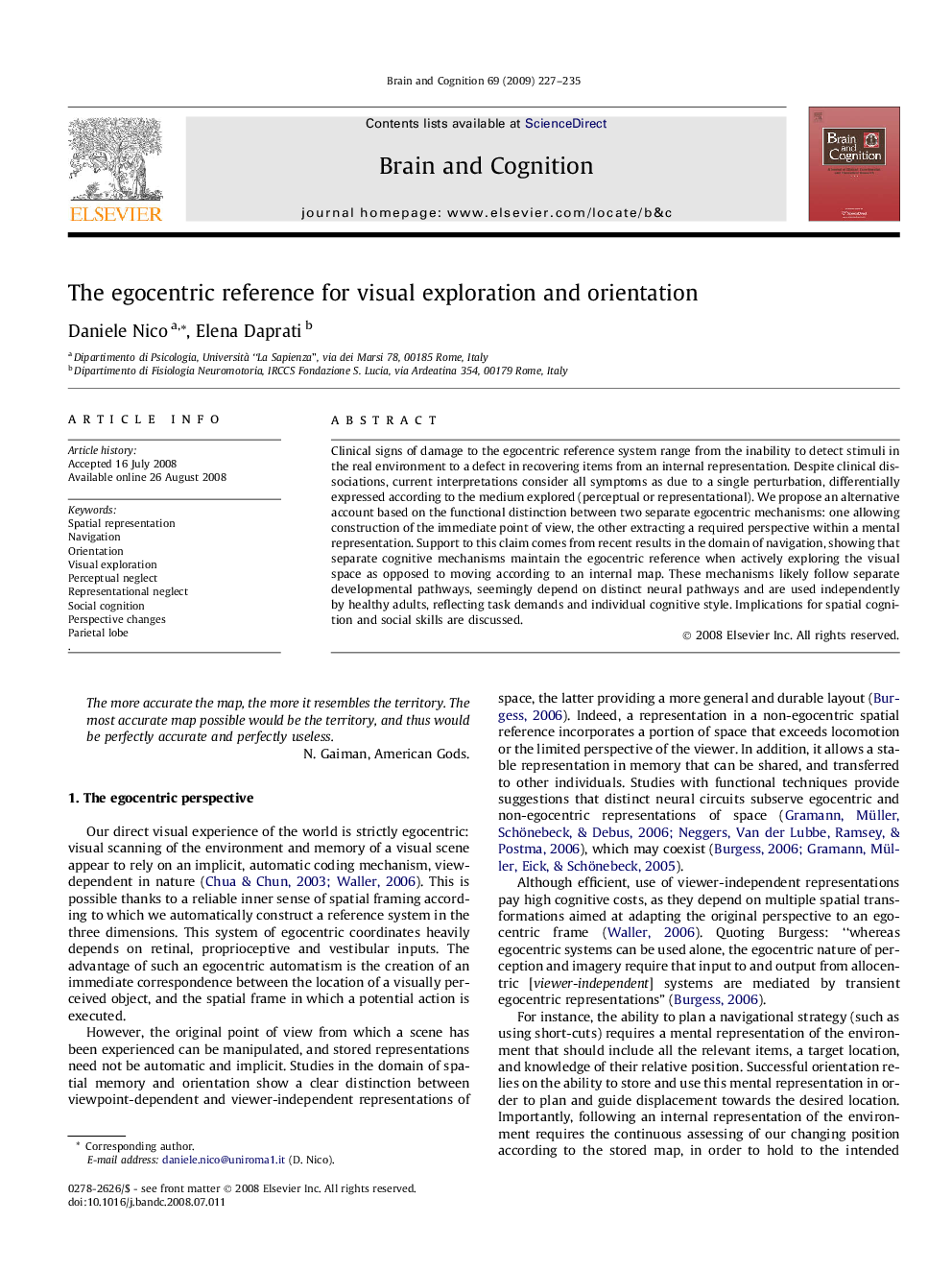| Article ID | Journal | Published Year | Pages | File Type |
|---|---|---|---|---|
| 924856 | Brain and Cognition | 2009 | 9 Pages |
Clinical signs of damage to the egocentric reference system range from the inability to detect stimuli in the real environment to a defect in recovering items from an internal representation. Despite clinical dissociations, current interpretations consider all symptoms as due to a single perturbation, differentially expressed according to the medium explored (perceptual or representational). We propose an alternative account based on the functional distinction between two separate egocentric mechanisms: one allowing construction of the immediate point of view, the other extracting a required perspective within a mental representation. Support to this claim comes from recent results in the domain of navigation, showing that separate cognitive mechanisms maintain the egocentric reference when actively exploring the visual space as opposed to moving according to an internal map. These mechanisms likely follow separate developmental pathways, seemingly depend on distinct neural pathways and are used independently by healthy adults, reflecting task demands and individual cognitive style. Implications for spatial cognition and social skills are discussed.
